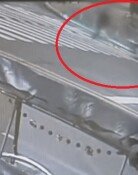[Opinion] On TV, Fact, Fiction Meet
[Opinion] On TV, Fact, Fiction Meet
Posted July. 26, 2006 03:01,
In Geunjeongjeon, Changdeok Palace. the Emperor asks the civil and military ministers lined up in front of him their opinions on the national affairs. One of the ministers answers, "Your highness, methinks this must `ere be done alike ye olde times. This is an imaginary picture of the palace when the Sarim group ousted the Hungu group, the relatives of the Emperor, and seized power in the middle years of the Chosun era. Nobody who appears in TV dramas or films based on palaces speaks dialect languages. But the historians presume that taut tensions would have been formed between the Hungu group who spoke the standard language and the Sarim group who spoke dialect languages when the learned from provincial areas made their way through to the central government.
Faction is a new word combining fact and fiction. Throughout all ages and places, theres no better material for drama than history. From the TV dramas Womens World (Yeoincheonha), which put the word Whaaat? on everybodys lips several years ago, and Daejangeum which accelerated the Korean Wave, to the film King and the Clown, which mixed up the tragedy of Yeonsangun and a homosexual love code. It is the role of the writers to find the hints for their stories in historical characters or events and add the romance between opposite sexes and persuasive plots to what they have found.
It was in other countries that faction phenomenon triumphed in the popular culture. The fictional Da Vinci Code composed the story that Jesus as a real character married Mary Magdalene and gave birth to a child, and recorded an unprecedented hit. Gladiator, a film that made a hit in Korea too, depicts Emperor Marcus Aurelius as murdered by his son Comodus, but this is just a fictional device inserted to form the conflict in the story. On the internet, nevertheless, people ask, Why did Comodus murder his father?
Theres controversy that the faction genre seriously misinterprets the truths in history. The TV drama Yeon Gaesomun described that Yeon Gaesomun directed the Battle of Ansiseong Fortress in which Emperor Tai Zong of Tang Dynasty retreated, and this is one of the examples. Imagination is what fills the gap between a fact and another fact. But it seems to be due to a lack of sense of responsibility or thoughts that the TV dramas should misinterpret facts as clear as day. It is desirable that they insert a subtitle before and after the drama saying, this is a fiction.
Chung Seong-hee, Editorial writer, shchung@donga.com







